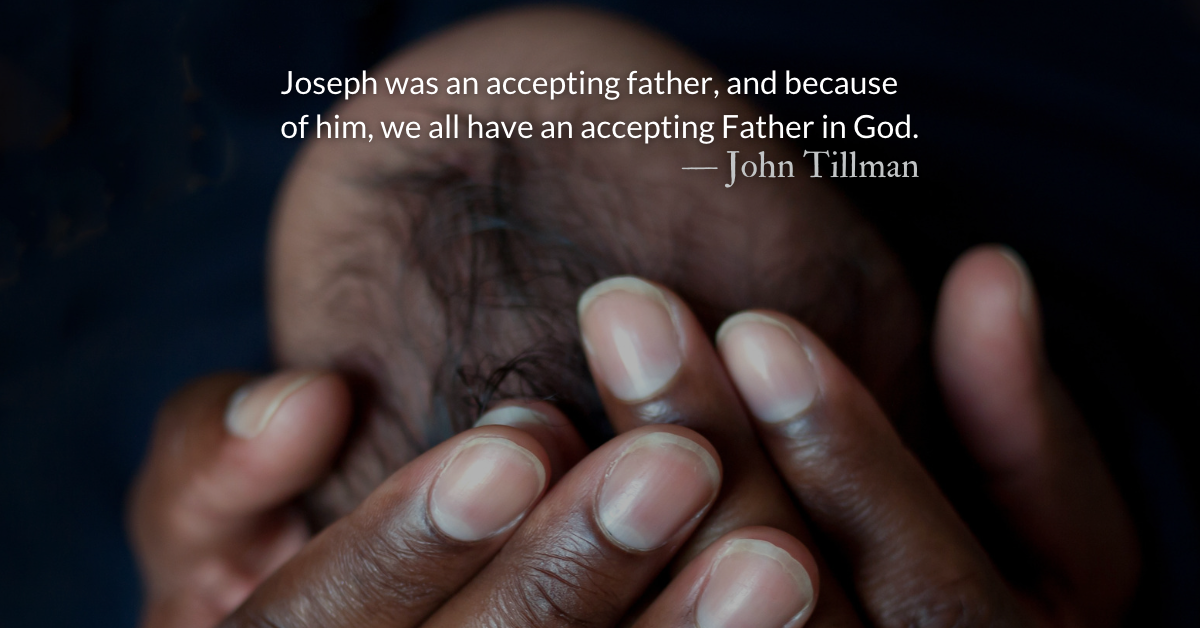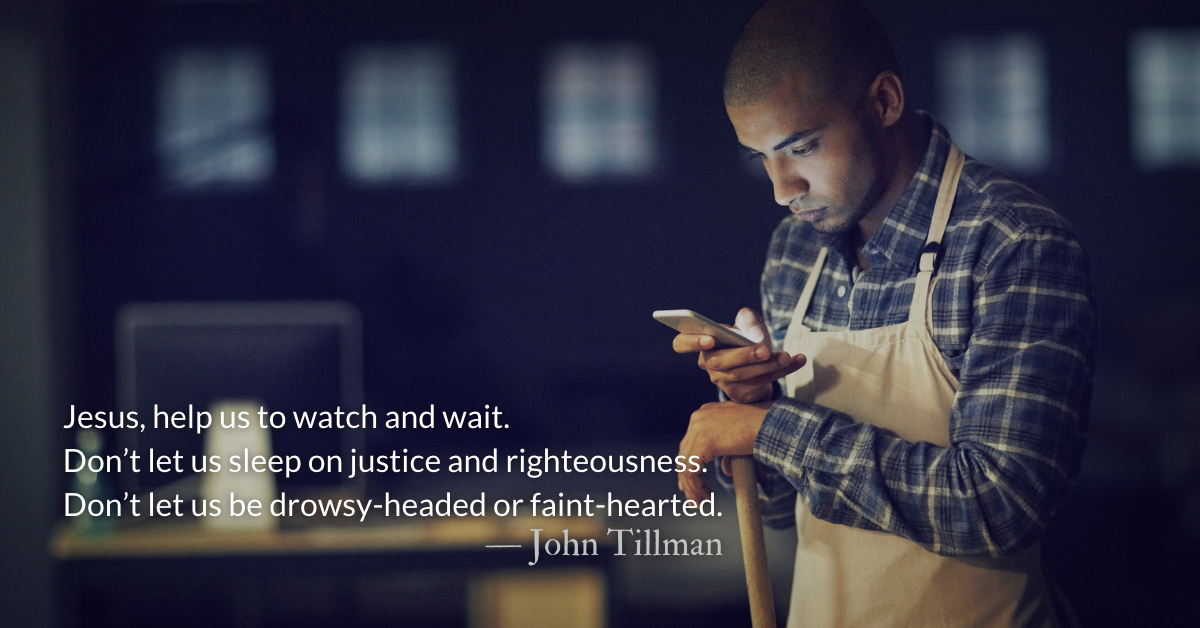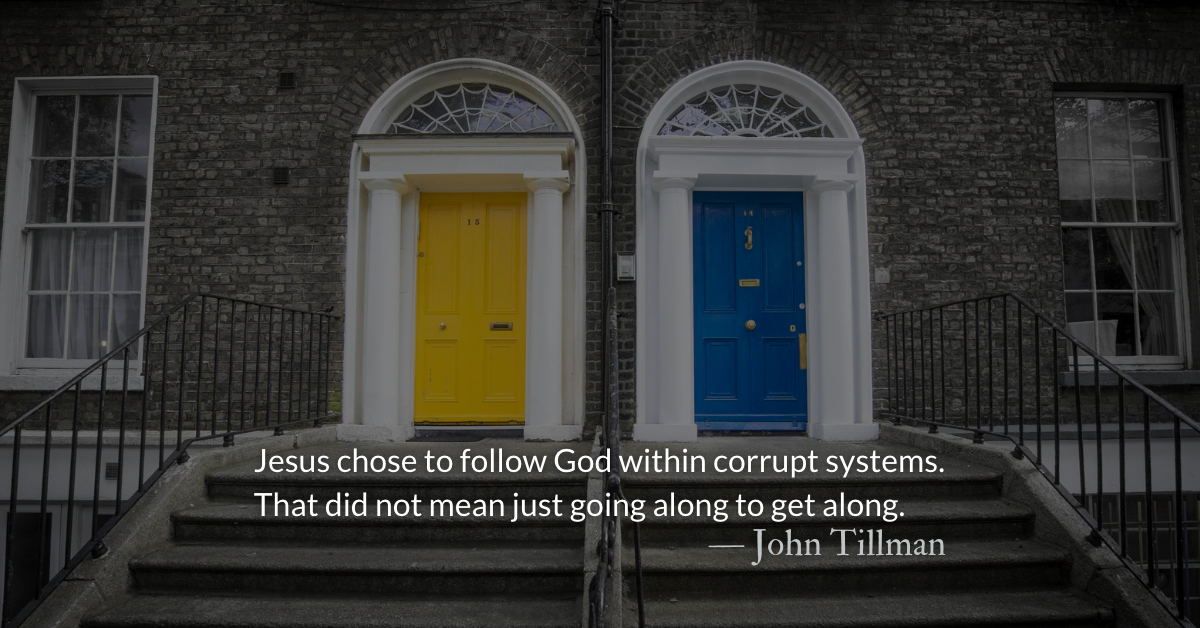Scripture Focus: Matthew 1.24-25
24 When Joseph woke up, he did what the angel of the Lord had commanded him and took Mary home as his wife. 25 But he did not consummate their marriage until she gave birth to a son. And he gave him the name Jesus.
Reflection: An Accepting Father
By John Tillman
Headings in scripture are not part of the original texts. There are no hard or fast guidelines on what sections should get a heading and which should not. Though these headings are not part of the Inspired Word of God, they are inspired by the Word. They are inserted by the scholars, editors, and publishers of the particular printings of the Bibles we choose. Their function is merely to help readers visually scan or skim for the section we are looking for.
Between verses 17 and 18 of the first chapter of Matthew, many English Bibles include a heading. The simplest heading is in The Message, which says, “The Birth of Jesus.” The NLT gets theological, saying, “The Birth of Jesus the Messiah.” The ESV inserts the Greek title for Messiah, saying, “The Birth of Jesus Christ.” The NKJV mentions Mary, saying, “Christ born of Mary.” The HCSB uses a fancier word for birth, saying, “The Nativity of the Messiah.” The NASB adds the Holy Spirit’s role, saying, “The Conception and Birth of Jesus.” The KJV and WEB leave this section of scripture unadorned, saying nothing at all.
But the NIV adds a radically different heading, with an emphasis on relationships and story: “Joseph Accepts Jesus as His Son.” It’s like a mini-devotional all laid out in six words.
Most of what we know about Joseph comes from Matthew. No author recorded his words, but Matthew recorded his heart and motivations. Joseph was faithful to the law—a righteous man. Yet despite what it seemed that Mary had done, he was merciful, not demanding the law’s punishment. He was a cautious man and obedient to God’s will.
As with his ancestor, Joseph, (Genesis 37.5-7; 40.8) God spoke to Joseph of Nazareth in dreams. (Numbers 12.6; Matthew 1.20; 2.13) Joseph understood the implications of Isaiah, of the name, “Immanuel” and the name, “Jesus.” As surely as Mary welcomed Jesus, Joseph did as well. This dreamer, Joseph, was willing to take in this mysterious son who was not his son.
The “son of David,” Joseph, accepted The Son of David, Jesus, as his son. Because of this, we can be accepted by Jesus the Son of David as sons and daughters of God. Joseph was an accepting father, and because of him, we all have an accepting Father in God. Despite what we have done, God is merciful, accepting us as his children.
Divine Hours Prayer: The Greeting
I put my trust in your mercy; my heart is joyful because of your saving help. — Psalm 13.5
Today’s Readings
Genesis 40 (Listen 2:59)
Matthew 1 (Listen 3:29)
Read more about Dream Like Joseph
May we pray and dream as Joseph did. For only with a spiritual connection can we do what we must as a part of our calling.
Support our Work
The Park Forum strives to provide short, smart, engaging, biblical content to people across the world for free with no ads. Please consider supporting our work.











